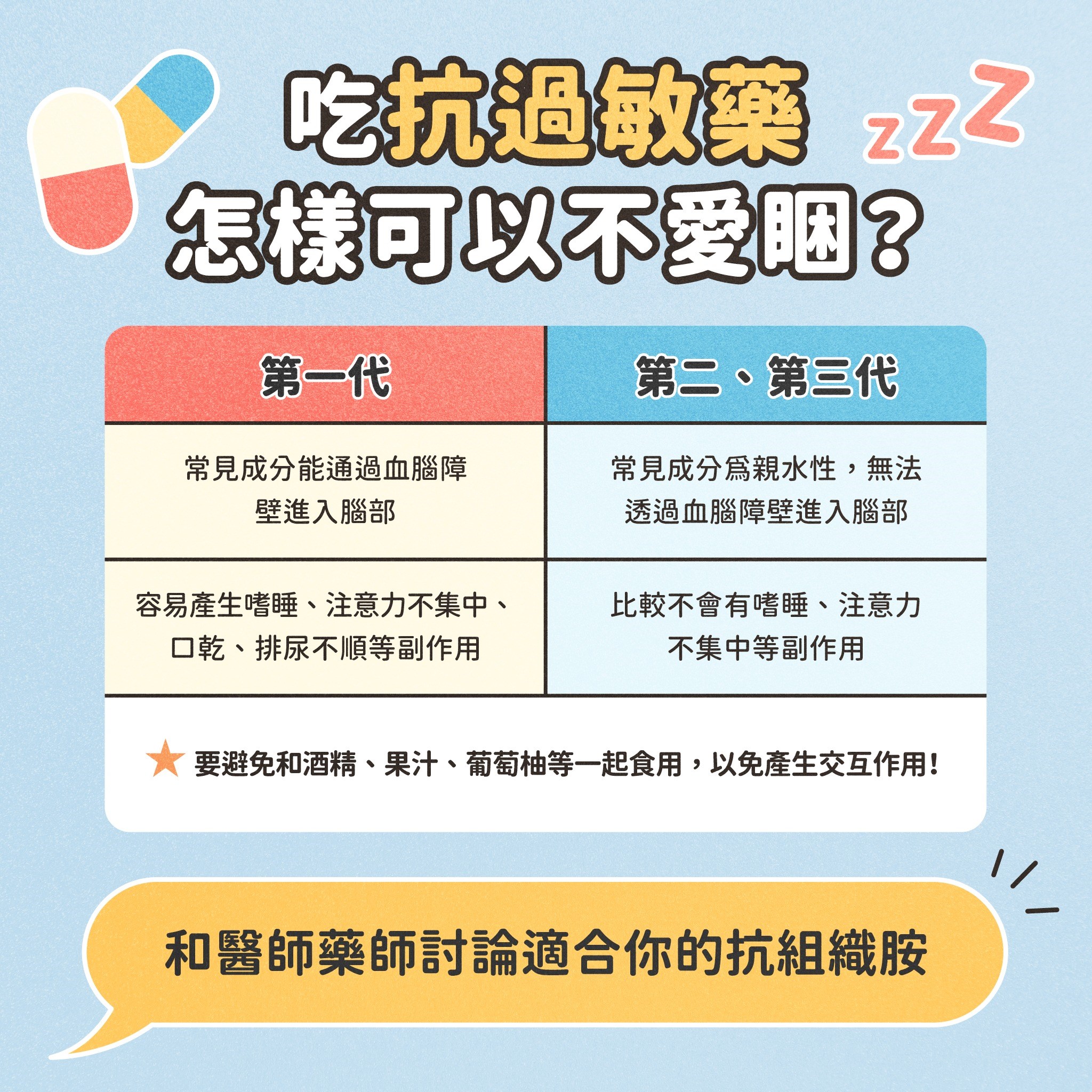Menu
Others
Issue 510 – Why Do Antihistamines Make You So Sleepy?
Allergy acting up? Antihistamines can relieve symptoms, but why do some make you feel extra sleepy while others don't?
Pharmacist Kuo Chien-Hung explains the differences between first- and second-generation antihistamines and shares tips for using them safely.
How Do Antihistamines Work?
When you encounter an allergen, your body releases histamine, triggering symptoms like swelling, itching, and runny nose. Antihistamines block histamine from binding to receptors, helping ease these symptoms.
Differences Between First- and Second-Generation Antihistamines:
First-gen antihistamines (like Diphenhydramine) can pass the blood-brain barrier, causing drowsiness and other side effects. Second-gen antihistamines (like Cetirizine) don't cross into the brain as much, so they’re less likely to cause sleepiness.
When Should You Use Antihistamines?
Always follow a doctor's or pharmacist's advice before taking them, especially for pregnant women, people with certain health conditions, or those on other medications. Antihistamines can interact with alcohol and fruit juices, so be cautious.
Safety Tips:
- Avoid using antihistamines if you're operating heavy machinery or driving.
- Watch children closely to prevent accidental overdose.
For tailored advice, talk to your healthcare provider about which antihistamine is best for you.
Source: Taiwan Food and Drug Administration, https://article-consumer.fda.gov.tw/subject.aspx?subjectid=2&id=3701
Phone: 03-4227151#57270、03-2804814
Fax: 03-4272405
Email: ncu7270@ncu.edu.tw
Address: No. 300, Zhongda Rd., Zhongli District, Taoyuan City 320317, Taiwan (R.O.C.)
Views: 0
Copyright © Health Care Division, National Central University
National Central University - Health Center

